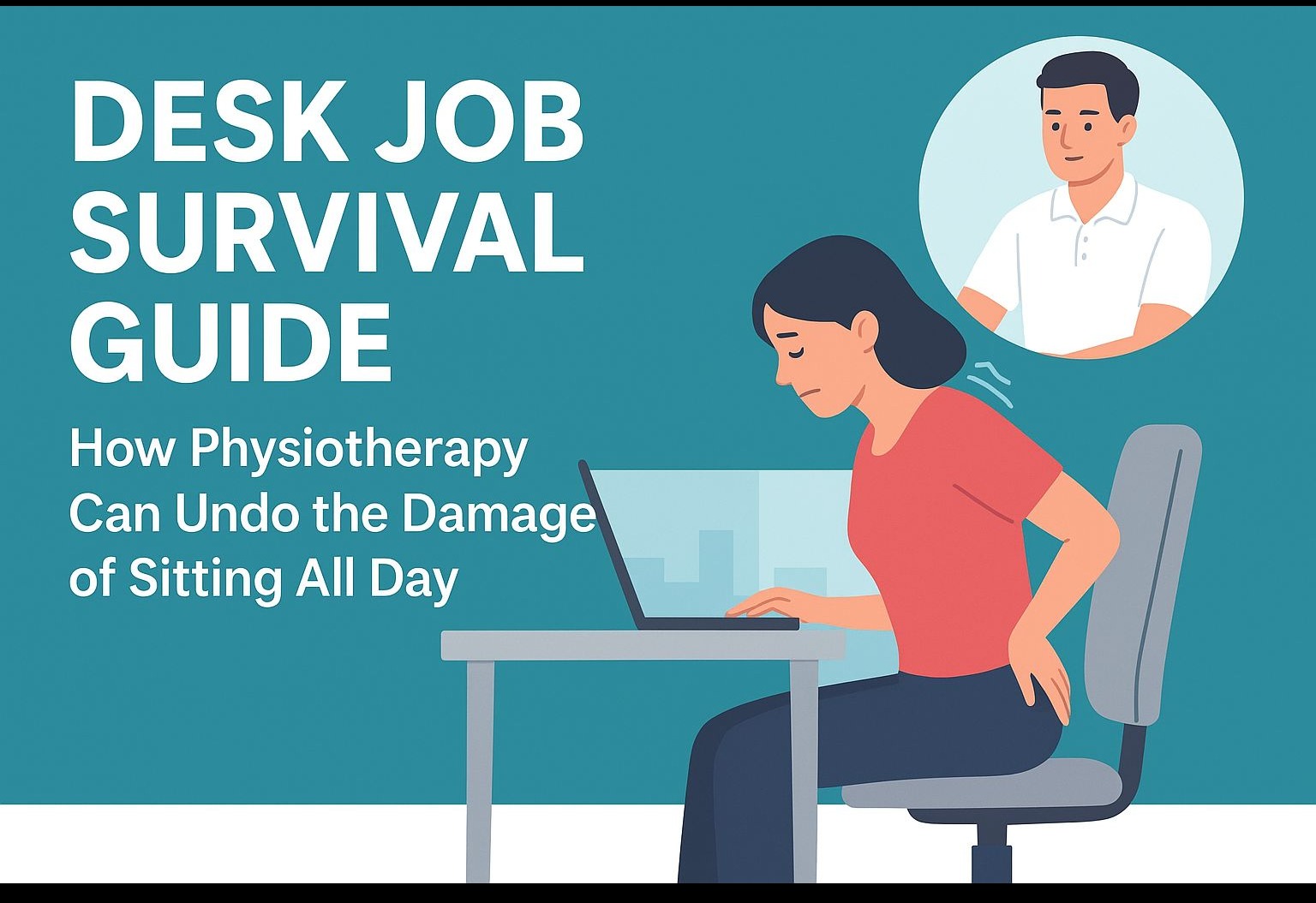



In today’s digital world, millions of professionals spend 7–10 hours every day at their desks. While technology boosts productivity, the human body is simply not designed to sit for such long stretches. The result? Neck stiffness, back pain, tight shoulders, poor posture, reduced mobility, and in the long run—serious musculoskeletal issues. But here’s the good news: physiotherapy offers effective solutions to reverse and prevent the damage of prolonged sitting. With the right guidance, you can make your workplace healthier and your body stronger. The Hidden Dangers of a Desk Job • Neck & Shoulder Strain – Forward-head posture puts excessive stress on cervical muscles. • Lower Back Pain – Sitting compresses spinal discs and weakens core muscles. • Wrist & Hand Issues – Typing for hours without proper ergonomics may cause carpal tunnel syndrome. • Poor Circulation – Long sitting reduces blood flow to legs, increasing risk of varicose veins and stiffness. • Mental Fatigue – Physical discomfort adds to stress, lowering focus and productivity. How Physiotherapy Can Help Physiotherapists are movement specialists. Through assessment, exercise, and manual therapy, they help restore balance to your body. Here’s how physiotherapy undoes desk-job damage: 1. Postural Correction – Teaching ergonomically correct sitting and standing positions. 2. Mobility & Stretching Programs – Customized stretches for neck, shoulders, spine, and hips. 3. Strengthening Exercises – Core, back, and glute strengthening to support prolonged sitting. 4. Pain Relief Techniques – Manual therapy, dry needling, and myofascial release to ease tight muscles. 5. Workstation Ergonomics Advice – Setting up your desk, chair, and screen for optimal posture. 6. Preventive Care – Regular physiotherapy check-ups ensure minor stiffness doesn’t turn into chronic pain. Quick Desk Exercises You Can Try • Neck rotations & chin tucks to reduce forward-head posture. • Shoulder rolls every 30 minutes. • Seated spinal twist to keep your back mobile. • Standing hip flexor stretch to release tight hips. • Wrist extensions & finger stretches to counter typing strain. At PhysioNautics, we understand the toll desk jobs take on your health. Our approach is personalized, evidence-based, and preventive—helping professionals not only recover from pain but also build resilience against it. From ergonomic consultations to advanced manual therapy, our team ensures that you can work comfortably and live actively outside the office too.
We hate spam too.